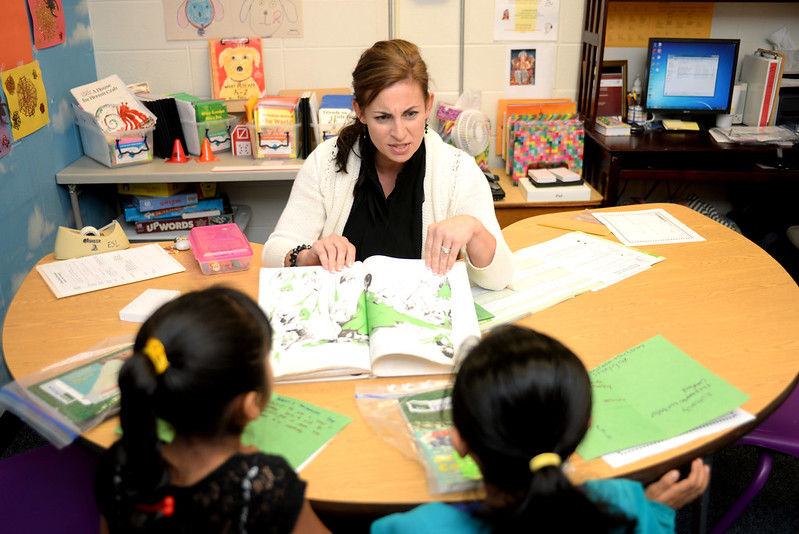
When I began my career as a young kindergarten teacher, I was filled with hope for my students. I envisioned teaching children to read and changing their lives forever. Little did I know, I was ill-equipped for the instruction I was entrusted to provide.
Now, 15 years later, I walk through the classrooms absolutely astounded by what I see and hear. Students are genuinely engaged in discussions around topics like colonial times and the human body. The vocabulary they are using is mindblowing! The expectations are much higher than I could have ever imagined, and our students are thriving.
What is the catalyst for this change? High-quality materials placed in the hands of teachers.
Two years ago, our school district decided to pilot high quality ELA instructional materials and our school implemented Core Knowledge Language Arts (CKLA) in all kindergarten and first-grade classrooms. Through the LIFT Network, we received implementation support from TNTP and other committed districts across Tennessee. With recent research showing the importance of high-quality curriculum, we knew this would be an amazing opportunity.
Before the pilot began, our teachers did not have a curriculum that met the rigorous demands of the Tennessee Standards, and they had no choice but to search online for resources to support their instruction. Research shows that our teachers are not alone. A 2017 Rand Analysis found that the top two places teachers go to find lessons and materials are Google and Pinterest.
Teachers spend countless hours each week to pull lessons from online sources in order to meet standards. In fact, research has shown that, “Teachers spend seven to twelve hours per week searching for and creating instructional resources (free and paid), drawing from a variety of sources, many of them unvetted.”
Why do teachers feel the need to search online for materials? A recent study found four main reasons: to increase student engagement, to meet students’ diverse needs, to fill instructional gaps, and as a way to save time. This same study shows why unvetted online materials are a problem. The study examined more than 300 of the most downloaded materials from the most popular supplemental websites, and reviewers rated most of them as “mediocre” or “probably not worth using.”
When I told our teachers they would be provided with a literacy curriculum that would give them everything they needed, they were skeptical. With support from TNTP and our district, we encouraged teachers to “trust the process.” They embraced the challenge, tossed out the old materials, and gave CKLA a try.
We are now in year two of implementation, and our teachers attest to the rich vocabulary, the building of knowledge, and an overall transformation in their expectations for students. Time previously spent searching for materials is now used to focus on student needs and robust instructional practices. Our PLC meetings are more student-focused than ever, because teachers have a clear understanding of the path to achieving language arts standards and the high-quality materials necessary for success.
Our teachers say that having a strong curriculum has increased their confidence in their teaching abilities. It’s taken away the uncertainty. Teachers also report that they are able to see and understand “the why.” One teacher described having a quality curriculum as, “hitting the teacher jackpot.” Another stated that she could “never go back to anything else.”
This year, our school expanded implementation of CKLA to second grade; it is especially rewarding to see K-2 students meeting high expectations in a way we never could have imagined. When I see the level of learning that is happening, I am taken back to my first year teaching. With a high-quality reading curriculum, I could have provided my students with so much more.
When we place high-quality materials in the hands of teachers, we empower them to be the educators they were meant to be. We give them the opportunity to achieve what they envisioned when they chose the profession. Teaching children to read and changing their lives moves beyond an unattainable vision and becomes reality.
Sidney Ogle is the assistant principal/curriculum coordinator at South Lincoln School in Fayetteville, Tennessee.